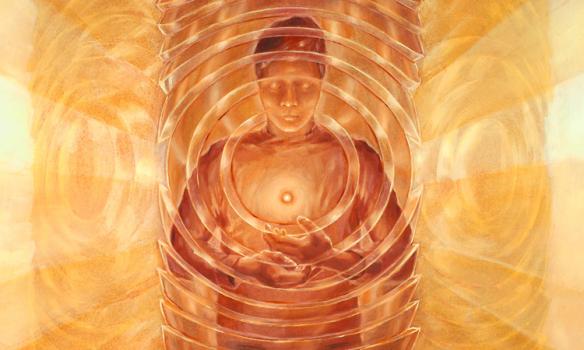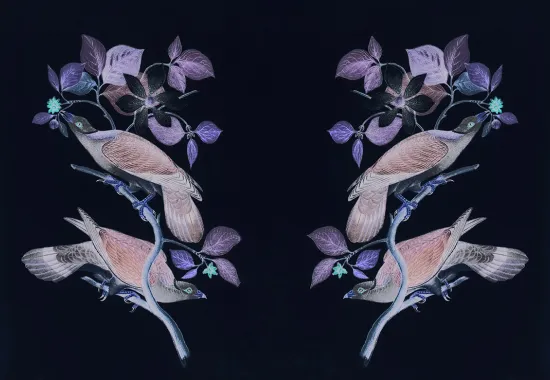Summons: Thoughts on Reflective Writing and Mental Health
To write an honest, reflective poem can call a risky visitation upon the poet.
In healthier manifestations, our human fascination with self can be endearing. From carefully orchestrated selfies to quizzes that analogize us with everything from Illuminati to pizza toppings, our library of devices for personal categorization is staggering. Ideally, reflection can clarify the individual’s integrity among everybody else, and inspire him or her to a deeply satisfying life of service, while in its more insidious incarnations, it can be a real shit in the air conditioning unit.
Subsequently, I see a balanced reflective practice is constituent to sustainable writing. The consequences of tipping too far into oneself glare at the writing community in the many brilliant minds who have struggled with or succumbed to mental illness. It seems that many who undertake a deeply reflective project of any sort must risk themselves to themselves.
Which makes sense, with such a vibrant and terrible wilderness lurking inside us. We may choose to tend to or passively explore our internal universes, but either way the extraction back into the matrix of interpersonal connections may at times require tremendous effort.
For me, the creative strain on mental health emerged out of a lip-service commitment to honesty in my poems. When that unchallenged inner rhetoric came up against a major character challenge, I was forced to question the authenticity of my motivations and the honesty of my self-observation.
In early 2013, I moved to Taipei, Taiwan, and had the good fortune to meet and learn from an incredible Rinpoche, as well as to befriend many of his insightful students. The fortune was tremendously good for the fact that my family back home simultaneously experienced a massive upset—the depraved nature of which emotionally eviscerated my mother and left my sister and me reeling. Living alone for the first time, being in a foreign country, and having no emotional support network to rely on, my poems became unwieldy, dizzying, and guilt-sick. I sought direction and solace from Rinpoche, but what I got pissed me off.
The first time a fellow student suggested I try to find a way to be grateful for the upheaval of my family, I thought he was full of shit. Viewing pain as good earth to cultivate gratitude seemed obnoxious at best and perverse at worst. I listened as Rinpoche advised his students to befriend their afflictions, but I clung to my own dissidence, afraid of what might happen if I met myself directly.
The pain grew unbearable. It was a constant presence that demolished some of my relationships and strained others. Not knowing what else to do, and in need of an incentive to compel myself into each tomorrow, I booked a yoga teacher training in Thailand six months out. This forced me to adopt a regular yoga practice, and it demanded a diligent look inward.
I’d sob while doing hip openers and listening to dubstep cuts of Florence and the Machine (sorry, not sorry), or sob while sitting in silent half-lotus. I’d sob through every mantra that seemed to ossify even as it sat at the back of my throat. But with each practice, my fear became a fraction more approachable. And, horrifyingly, with each practice, my fear seemed less and less separate from myself.
The palliative realization came not when I was sitting in meditation, but when I was at work. The room emptied of oxygen and my sad little office glittered profusely. I knew suddenly and without doubt that I was responsible for my own emotional state, that I had been choosing pain. I reeled through the last few hours of work then cycled home, feeling as terrible and free and responsible as a god.
I had searched for the name of my beast and found only my own. I reclaimed my power by observing myself. In time, I healed, reconnected, and moved forward.
The less we understand the mechanisms of our own trips, the easier it is to confuse them with the entirety of the universe. The more assured we are of the universality of our perspectives, the easier it is to become lost in them, to impose them on others, and—perhaps most tragically—the more difficult it is to genuinely connect with each other.
To invoke the self is a perilous business, as rewarding as it is risky. Anaїs Nin’s widely-quoted proclamation that “we don’t see things as they are, we see them as we are” has become a palpable reality in my world, and a weighty consideration in my writing, as well as my daily life. Whatever the reason we turn inward, may we do so with mindfulness of the power of our perceptions and the knowledge that we can shape our internal landscapes with both honesty and compassion if we have the courage to do so.
Jessica Morey-Collins is a Southern California expatriate who currently develops literature curriculum and studies Vajrayana Buddhism in Taiwan. Her poems can be found in Metazen, Vinyl Poetry, The Buddhist Poetry Review, ILK, Cleaver Magazine, and elsewhere. She will begin work on her Master of Fine Arts at the University of New Orleans in the fall of 2014. Jessica is featured in North American Review issue 299.1, Winter 2014.
Today's featured artwork is from Ethan Bifano, a professional artist who specializes in science fiction, fantasy, and conceptual oil paintings. He can often be found hiking the trails of Pennsylvania. Ethan was featured in issue 298.4 of North American Review.
Recommended
The Shirt
After Hearing David Rothenberg Sang with Birds
Frothing Pink Poodle Droppings






